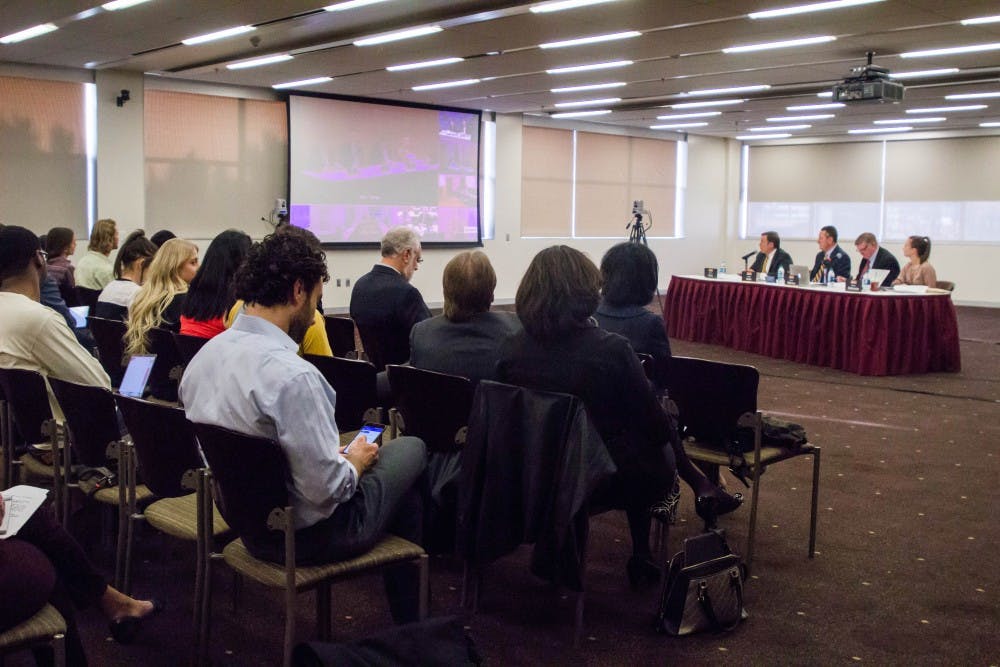Incoming students entering ASU in Fall 2019 will potentially have an array of new degree options to choose from.
ASU requested permission to offer 23 new degree programs within the University at an Arizona Board of Regents meeting on Nov. 1.
The degree programs range from sports science to natural resource management. The programs will help the University "advance issues of community development, health, education, language and linguistics, sustainability, leadership and innovation, and natural resources," according to the ABOR document.
Four of the proposed programs will be offered to undergraduate students, including Community Development (BA), Natural Resource Management (BS), Sports Science and Performance Programming (BS) and Sustainable Food Systems (BS). The remaining 19 programs would be for graduate students and range from policy advocacy to investigative journalism and Spanish linguistics.
The request described the new degree programs as meeting the University's goal to "engage students with issues locally, nationally and internationally."
According to ABOR policy, universities must get the approval before establishing new academic programs.
The process of requesting new degree programs begins with college deans who submit potential degree programs to ASU.
From there, ASU’s executive vice president and provost, Mark Searle, is responsible for reviewing all requests and pushing them forward to ABOR.
Frederick Corey, ASU vice provost of undergraduate education, said when deciding on new degree programs, the University looks at a variety of factors.
“The provost works with the deans to find academic programs that are innovative, that are able to tap into the rich resources of the University and that will help our graduates succeed in an ever changing market,” Corey said.
Chad Sampson, the vice president of planning and analysis at ABOR, said when ABOR considers new degree programs they look at it with respect to their strategic plan.
"The board really looks at this through the umbrella of the strategic plan and particularly goal one and goal two,” Sampson said. “Goal one has to do with individual student success, and goal two has to do with educational attainment for the state generally.”
Julie Liss, the associate dean for the College of Health Solutions, which currently has the sports science and performance programming degree pending approval at ABOR, said sometimes students are also involved with proposing new degree programs.
“ASU now has an undergraduate degree ... in neuroscience and that was because students raised their voice," Liss said. “It’s a good example of a grassroots effort.”
While there is no official count of how many degree program requests ASU submits to ABOR, Sampson said, “proportionally they are approved, overwhelmingly, and that’s because the universities do a substantial amount of vetting.”
Once the universities present their requests to ABOR, he said a discussion occurs and the bureaucratic paperwork comes after.
“When we get (the requests) we usually have a dialogue with the university’s provost office asking for additional information,” he said.
Creating a perfect program is difficult, but in the end it’s all about students and the community, Sampson said.
"(ABOR) wants to know if a student enrolls in this program that there is a substantial benefit for the student as an individual and that there’s a substantial benefit to the state of Arizona,” he said.
Reach the reporter at mzhao49@asu.edu and follow @michelle_zhao23 on Twitter.
Like The State Press on Facebook and follow @statepress on Twitter.




